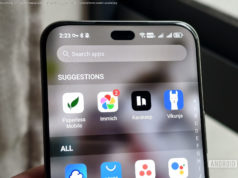The best-known video celebrities gravitate to the mass audience of YouTube. But some others are carving a niche on the worlds biggest social network.
SAN FRANCISCO — Laura Clery has the trappings of a YouTube star — seven-figure annual earnings, brand sponsorships and millions of fans who watch her comedy videos — except for one notable difference: She’s finding fame and fortune on Facebook.
With three million followers on the social network, Ms. Clery hosts a weekly cooking show on Facebook Live as Pamela Pupkin, a pseudo-spiritual guru who enjoys berating her husband and interacts with fans in character. Her other sketches as Helen Horbath, a foul-mouthed female stalker who pursues a male crush with sexually loaded pickup lines, routinely receive several million views on Facebook. The character has such a loyal following that Helen has a line of T-shirts, and one fan tattooed her face onto his arm.
As an early participant in Facebook’s video revenue-sharing program, Ms. Clery is one of its first stars to receive YouTube-like payments. Developing native stars is part of Facebook’s ambition to challenge YouTube as the internet’s primary destination for video by getting users to see it as more than a repository of one-off hits.
While 1.5 billion people go to YouTube every month specifically to watch videos, Facebook users stumble upon videos among a friend’s vacation photos or in a news story. Because it’s easier to share content, videos like “ Chewbacca Mom ” tend to spread like wildfire on Facebook.
But the social network has struggled to match YouTube’s success in coaxing viewers to watch for longer stretches, which is essential to siphon off TV advertising money. YouTube said mobile viewers, on average, watch for more than an hour a day — a testament to its huge video inventory and uncanny ability to predict what you want to watch next.
To capture and retain the attention of its two billion monthly users with more than short, viral clips, Facebook is now delivering live sports as well as creating its own serialized programs and exclusive shows. It is also courting performers who can build a passionate audience and keep them coming back.
Such stars have been critical to YouTube’s success because they have fiercely loyal fans and appeal to audiences underserved by traditional media companies. Popular personalities like Jake Paul on YouTube have millions of subscribers who return daily to watch video diaries and music videos.
That is where Ms. Clery comes in. Feeling powerless over her acting career, Ms. Clery decided to try her hand at videos online two years ago. She started out on YouTube but struggled to stand out among the abundance of content.
One of her first Facebook videos — a skit about close talkers — was viewed 30,000 times in a day without any promotion or fans. In two years, she has become one of Facebook’s biggest stars and she is making more money than she ever did as a traditional working actor.
“I go where the love is and I go where I do better, ” said Ms. Clery, who had starred in a few sitcoms before moving into online video. “People said ‘Focus on YouTube because they monetize,’ but the reach was more important to me. I figured the money would come, and it has.”
Ms. Clery said a YouTube representative recently approached her to encourage her to focus more on YouTube. She already posts there, she said, but mostly to discourage people from stealing her videos and uploading them to the site.
Most online video creators are not exclusive to any platform, but the biggest stars publish most consistently on YouTube because its ad revenue-sharing typically provides the biggest payouts.
While most creators post videos to Facebook, it is sometimes treated as an afterthought or a marketing tool to redirect users back to their YouTube page. At last month’s VidCon, the online video industry’s annual trade show, Facebook unleashed a charm offensive to creators, highlighting its fledgling video ad programs and introducing a new app featuring tools to help creators make videos look more professional.
In the world of YouTube stars, few are bigger than Logan Paul, a musclebound, floppy-haired goofball. He has seven million subscribers to his daily video log on YouTube and shoots video with Dwayne Johnson, a.k.a. “The Rock.” He said creating videos for Facebook versus YouTube was akin to speaking different dialects.
“YouTube is modern-day television for the younger generation. The audience is superdevoted and willing to give you their time, ” said Mr. Paul, whose brother Jake is also a star. He said his video logs — a mix between a reality show and running diary — on YouTube span from 10 to 25 minutes. Other than live streams, most of his Facebook videos are about a minute long.
Facebook’s video ad strategy is not as developed, he said, but he uses Facebook to build his brand. Mr. Paul, who is exceedingly diplomatic about the different platforms, said he keeps dialogue to a minimum on Facebook because it serves a global audience who may not all speak English. He focuses on physical stunts — such as performing splits in locations around the world.
Last year, Facebook paid as much as $220,000 for top YouTube stars, including Mr. Paul, to produce exclusive content for Facebook Live. However, the deals did little to entice YouTube stars to post more frequently on Facebook. Facebook said those deals were to support stars as they experimented with Live, not an attempt to recruit talent to its platform.
“As long as YouTube continues to be a place where creators can amass a large audience, it’s always going to be a draw until another platform can match its revenue dollars, ” said Joshua Cohen, co-founder of Tubefilter, a site devoted to the online video industry.
Facebook started testing the new advertising program earlier this year to allow some creators, like Ms. Clery, to place 15-second ads in videos. Creators in the program said advertising revenue from Facebook was comparable to YouTube, although many cautioned it was still early. Facebook said it was “pleased” with the program and planned to include more creators.
Also, both companies are pushing to help creators land so-called influencer marketing deals — connecting social media stars with companies that want their brands or products promoted. Last year, YouTube acquired FameBit — a marketplace to help marketers find influential stars — while Facebook made more people eligible to promote posts from brands.
Facebook and YouTube are also adding features that make them more alike. Last week, YouTube introduced a mobile feature to directly share videos with friends and maintain group messaging threads. YouTube also started a pilot program to allow major stars to post nonvideo content to their pages — creating a Facebook profile of sorts with photos and text.






